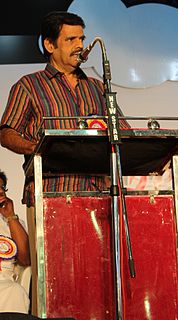A Quote by Richard Wright
All literature is protest.
Quote Topics
Related Quotes
But everyone cannot be there, and that is why photographers go there - to show them, to reach out and grab them and make them stop what they are doing and pay attention to what is going on - to create pictures powerful enough to overcome the diluting effects of the mass media and shake people out of their indifference - to protest and by the strength of that protest to make others protest.
Literature cannot develop between the categories "permitted"—"not permitted"—"this you can and that you can't." Literature that is not the air of its contemporary society, that dares not warn in time against threatening moral and social dangers, such literature does not deserve the name of literature; it is only a facade. Such literature loses the confidence of its own people, and its published works are used as waste paper instead of being read. -Letter to the Fourth National Congress of Soviet Writers
What has happened to protesters in the past was that, basically, the government in 2012 put an end to a series of mass protests by changing laws, by making it possible to arrest anybody for protests, and by making basically a show of imprisoning not just protest leaders, and not specifically protest leaders, but activists, rank-and-file protest participants. That gets across the idea that anybody who joins a protest without being an organizer, without being a visible leader, risks arrest, and not risks just arrest, but years in a Russian jail.





































